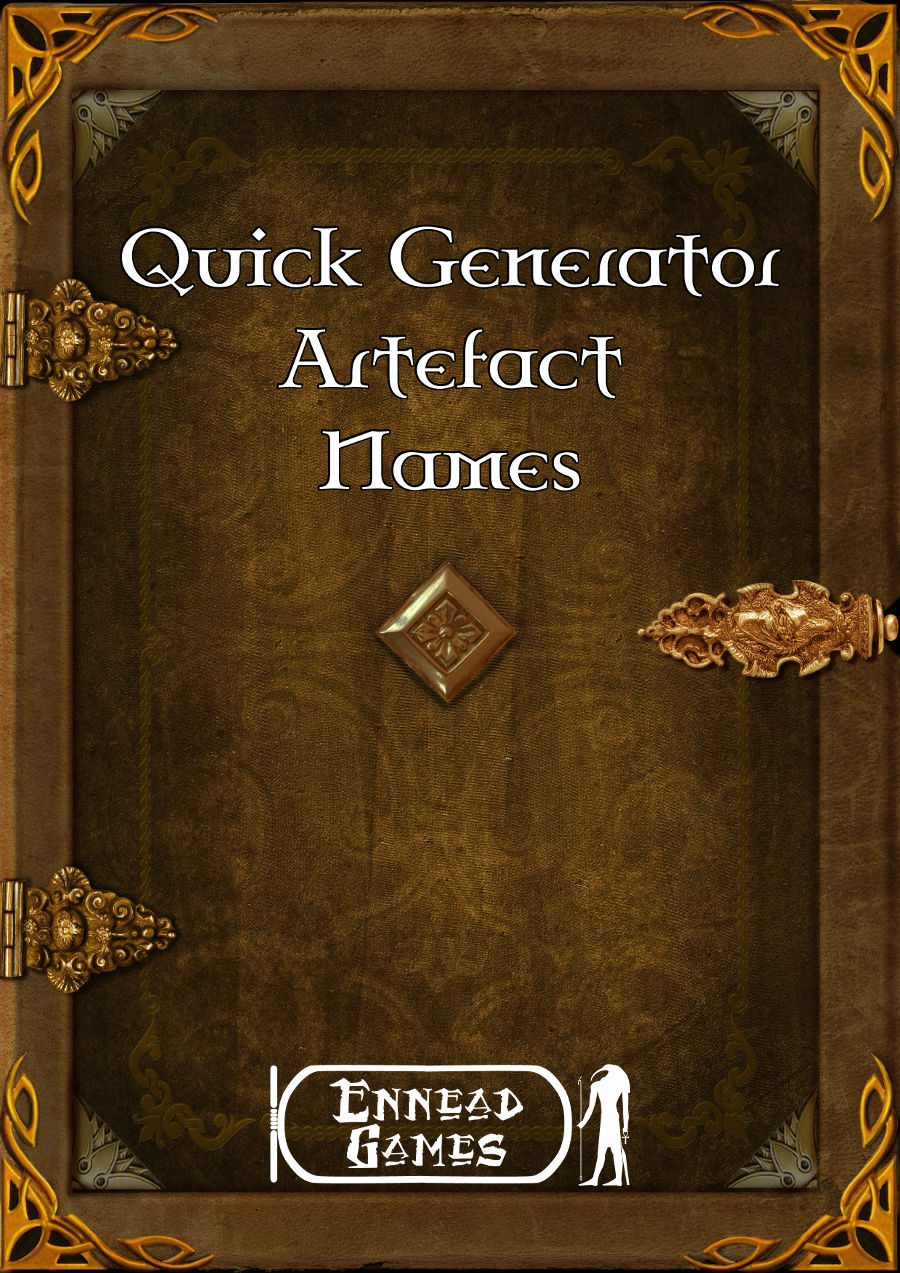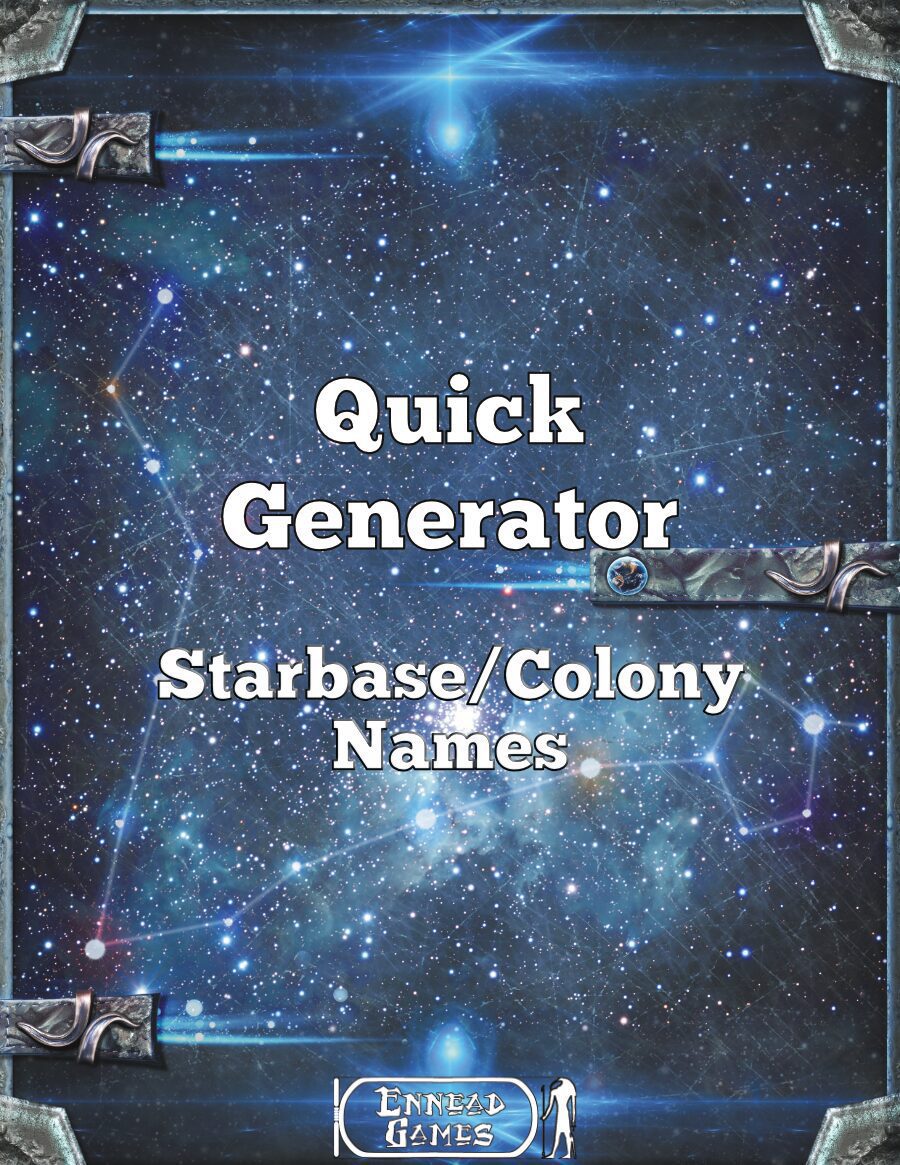
Minimal Prep and Time Requirements
Phil Nicholls blogs at Tales of a GM, where he writes about narrative gaming, faster prep and more story. He is currently running a HeroQuest Glorantha campaign in a home-brew setting. Phil has written for Johnn Four’s Roleplaying Tips newsletter and has a selection of self-published pdfs.
This essay is taken from the archives at Tales of a GM.
I received the following comment from edige23 in a response to my original article about Juggling Time:
What do you consider minimal prep? About how much time would you estimate you spend getting ready for any particular session. I’ve seen different GMs talk about this and have wildly differing senses of what that means. And for this I’m probably focusing on these tasks you mention- bookkeeping from last session and notes for the coming session
Edige23
Essentially, edige23 asked me TWO great questions, namely what do I think is minimal prep, and how long do I spend preparing for a Session. This essay answers both questions. In this updated text, I focus on my slimmer improv routine.
Minimal Prep
My minimal prep consists of just three processes:
- Bookkeeping/admin
- Session Outline Sheet
- Story Elements
By the term bookkeeping/admin, I mean keeping a record of Player attendance and the various game awards handed out to the Heroes as a result of the last Session. This is a simple matter of consulting my notes from the previous Session and then updating a spreadsheet.
I include this in my Minimal Prep category as these details need to be recorded each week, otherwise I forget. These spreadsheets are my long-term record of the campaign, a big picture of the sequence of Sessions and the progress of the Heroes.
The second strand of my Minimal Prep is the Session Outline Sheet. I compile this single-page form prior to each Session. It outlines the structure of the next Session, listing several ongoing plots I may feature in the game. These brief notes form the core of my session improv, along with Player input and the random effects of the dice.
My final prep is to create small index cards describing a story element to weave into the game. This could be notes for a location, a more mechanical challenge for the Heroes or longer notes for a GMC. These small cards are easily shuffled at the table to find the next element to weave into the story.
Time
If you asked ten different GMs, then I suspect you would receive ten different answers. This is entirely subjective, but the real point of this post is to encourage you to think closely about how much time you take, and see if there is anyway to speed up the process, to ensure faster prep and more story.
Looking at my prep in discrete parts, these are the categories of work I aim to complete each week:
- Write-up
- A prose account of the previous Session. I limit this to a single page, so it averages between six to ten paragraphs. This brief Chapter notes individual actions of Heroes, the highlights of the Session and a broader synopsis of events.
- This account is later uploaded to blog, where it can be accessed by both Players and GM.
- I aim to write these accounts on the bus journey home, so less than an hour total. As I have to take the bus anyway, this does not feel like it takes away any of my time. Total = 30 mins.
- Admin
- Bookkeeping attendance and character awards, as described above.
- Not a lot, as the spreadsheet just needs some numbers added to it, and I may need to think about the suitable rewards for the last Session. Total = 15 mins.
- Session plan
- Framework for the next Session, as described above.
- TIME About 30 minutes, including thinking up the next Chapter title and referencing various documents on my laptop to ensure times, dates and other details are consistent. Total = 30 mins.
- Story Elements
- Outlining individual elements to weave into a Session.
- By choosing to run a mechanics-lite rules system such as HeroQuest, I gain a lot of time during this stage of the process. I have forms for major plots, where I simply fill in the blanks within an established plot structure. I also have many charts and tables to speed the process of creating names, personalities and abilities as required.
- TIME Variable, depending how much the story already has momentum. 15 minutes or less in a good week, perhaps twice that when I have to set up a powerful instigating incident to propel the story through the session.
- Setting Creation – OPTIONAL
- Creating details for my hybrid published/homebrew setting.
- A highly variable category. Some weeks I have neither the time nor the need to create additional setting details. Other weeks, I interrupt the story element design to establish necessary setting details, and then record them to ensure consistency.
- Time spent on the setting is an investment which pays dividends throughout the rest of the campaign. These setting details may not affect the next Session, but they shape the campaign forever. I aim to run a sandbox-style campaign, so there is no telling when the Players will focus on any one aspect of the setting.
- As an estimate, this would average out at 15 mins per week.
Total Time
The time breaks down as follows:
Write-up 30 mins
Admin 15 mins
Session plan 30 mins
Story Elements 15 mins
Setting 15 mins
This gives me a total of 105 minutes, or 1 ¾ hours! This is spread through the week, and often in small sections. Many of these timings are approximate, but it feels about right.
Analysis
My prep is geared towards running a session which averages at 2 ½ hours, then the proportion of prep time to game time is favourable. Before I adopted an improv approach to gaming, this prep target was over six hours. Once again, the benefits of improvisation are clear.
When I have the time, I devote more energy to setting creation, house rules or GM tools. These all impact the game in the long-term, but are no longer a part of my weekly game prep. Such activities are more design-focused, rather than preparing for the next session. As the campaign progresses, these tasks are necessary, but I am relieved not to have them adding to my weekly schedule.
Conclusion
Updating this article was the second time I really examined my prep time in detail. It is rewarding to see my new approach has brought so many benefits in time. Our recent trend of brainstorming setting at the table also cuts down on my game prep. Generating ideas in collaboration with the Players is so much more satisfying.
I highly recommend you analyse your own prep schedule one week. Share your prep timetables in the comments below.
Happy Gaming
Phil
For more essays from Phil, and updates about his latest campaign, visit Tales of a GM.




2 thoughts on “[Tales of a GM] – Minimal Prep and Time Requirements”
Comments are closed.